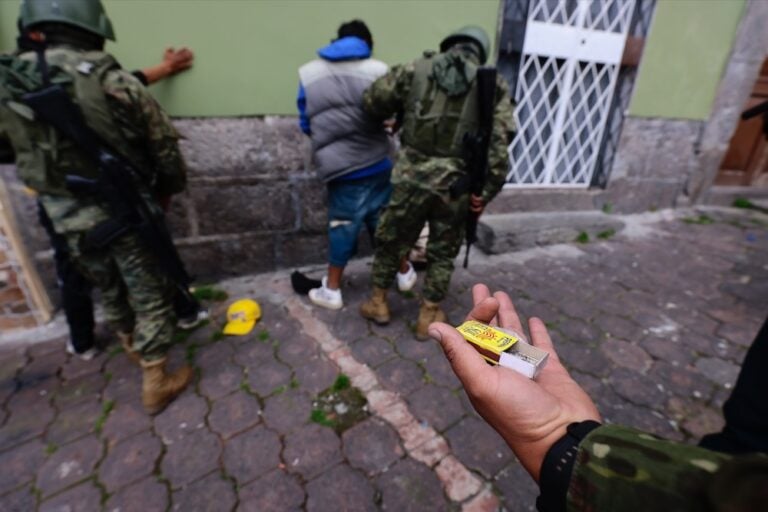Carlos Ignacio Cedeño was sentenced after being found guilty on an allegation of having defamed Doctor Melitón García on his radio programme.
(Fundamedios/IFEX) – 15 November 2011 – On 6 October 2011, Carlos Ignacio Cedeño, a radio broadcaster in the coastal province of Manabí, located in central-northwestern Ecuador, was sentenced to six months in prison after being found guilty on an allegation of having defamed Doctor Melitón García two years ago via his radio programme broadcast on the Sono Onda radio station.
Cedeño, who currently works for Radio Escándalo, said he has always been critical of the area’s doctors and that this conviction, which he believes infringes on his constitutional rights, “seeks to intimidate him and his colleagues, so that they will refrain from denouncing irregularities.”
The problem originated on 15 December 2009, during the programme “Diálogo con Carlos Cedeño”. According to the accusation filed by Doctor García, “comments that were detrimental and offensive to (the doctor’s) dignity” were broadcast during the radio programme. Cedeño allegedly accused Doctor García, founder of the San Antonio health centre, of taking gurneys and microscopes from the Verdi Cevallos Balda of Portoviejo public hospital to his private clinic, and of leading a strike aimed at getting rid of the hospital’s director.
Meanwhile, García’s lawyer, Tito Livio Mendoza, said the case has not ended, and that he is preparing a new civil action to demand reparations for the doctor, which he said will amount to at least US$1 million.
Previously, on 19 November 2010, Cedeño was convicted to a year in prison by a first instance Criminal Court in Manabí, which declared him guilty of slander. An appeal to a second instance court reduced the sentence to six months.
Fernando Farfán, the broadcaster’s lawyer, said his client’s rights were not respected in the process because invalid evidence that failed to include voice comparison tests and judicially recognised procedures was presented from the start.
He stated that in the next few days he will present an appeal to the National Court of Justice to review the process and verify the procedural faults that were committed. He hopes that this step will lead to a suspension of the sentence.
Fundamedios condemns the use of criminal law to punish the expression of opinions and notes that civil sanctions should be proportionate to the harm caused, especially in cases involving authorities and public officials. However, the organisation believes that citizens have the right to sue if they feel they have been defamed via the dissemination of inaccurate information or insulting opinions, and to *pursue legal remedies if it is proven that a journalist acted maliciously
Fundamedios is of the opinion that these principles should be applied in this case and that, as such, the broadcaster should be tried by a civil court and that the indemnization sought should be for a reasonable amount.


